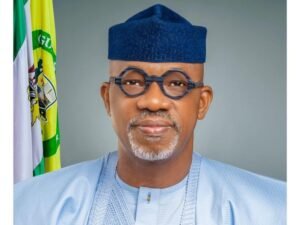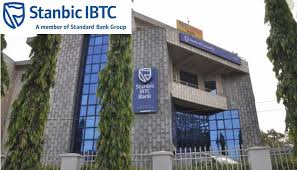
By Habibat Aliu
As Nigeria’s debt profile continues to rise, the Nigerian Investment Promotion Council (NIPC) has initiated steps to curtail future borrowings by boosting the country’s foreign exchange earnings.
A part of the initiatives to achieve the set goals is through a master plan that is expected to open up more investment space for new investors, both foreign and local, as well as retain those already in the system.
Speaking on the direction with the media in Lagos yesterday, the Executive Secretary/Chief Executive Officer of the Council, Hajiya Saratu Umar, said the mandate of NIPC was critical in this regard being the agency of the Federal Government that has the statutory mandate to encourage, promote, and coordinate investment into the economy.
According to her, this is critical to promoting economic growth, creating jobs, and generating wealth for Nigerians as well as facilitating development. This assignment is made very compelling if we are to set the nation on the path of sustainable progression toward becoming a prosperous nation.
She pointed out that there was a need to promote the country’s investment potential by putting up a marketing/branding strategy, stressing that there would be vigorous campaigns as the country cannot continue to go for loans.
She said: “Nigeria is a resource-rich country with a potential that is unrivaled by any other country in the world. Investment promotion comes into attracting Foreign Direct Investment (FDI) and mobilizing/remobilise Local Direct Investment to unleash the potential of the economy to the optimum.
“The market for FDI has become very competitive and versatile where the investment promotion thrust of successful jurisdictions that are attracting the largest global market share of FDI inflows are driven by effective, efficient, and performance driven investment promotion agencies.
“With over 178 IPAs worldwide competing to channel FDI to their different countries, a compelling imperative is established that NIPC ensures Nigeria gets a fair share of this global market.
“This is especially important with the onset of the Africa Continental Free Trade Area, which is now in force where an investor can establish an operation in any signatory country and access the Nigerian market.
“If we are to assert our position as a dominant regional player, we must enhance our investment drive.”
She also observed that the African economies had accentuated their investment climate reforms and business-friendly policies, facilitated by a very competitive investment promotion drive.
“The central and strategic role of the NIPC in the coordination of investment promotion should be activated to ensure Nigeria’s investment promotion drive is given traction to onboard investments into the different sectors of the economy in a bid to facilitate economic growth and national development including job creation, import substitution, foreign exchange generation and reduction of our reliance on debt amongst others.
“Consequently, it has become critically important for all stakeholders in the investment promotion ecosystem to work in synergy and complement our competencies to collectively drive a national investment promotion campaign.
“Thus, the National Investment Coordination Framework being evolved by the NIPC will provide a clear strategy for seamless collaboration and coordination of the investment ecosystem as well as usher in robust and effective stakeholder communication and engagement.
“We believe this will result in effective partnership with all critical stakeholders including the media community to galvanize Nigeria’s investment performance and ensure investment plays a central role in national development.
“Indeed, the media is amongst the most important stakeholders in the investment ecosystem.
“The immediate focus of this stakeholder engagement is to seek a more effective partnership towards national development.
“Ultimately, the desired goal is to ensure collective action that will firmly place the country on the path of sustainable prosperity for current and future generations,” she added.
Speaking further on the Masterplan, the Executive secretary said the focus on investment would be largely pronounced in non-oil export by exploring the various industries in the agric value chain as well as tapping into the country’s solid minerals potential.








